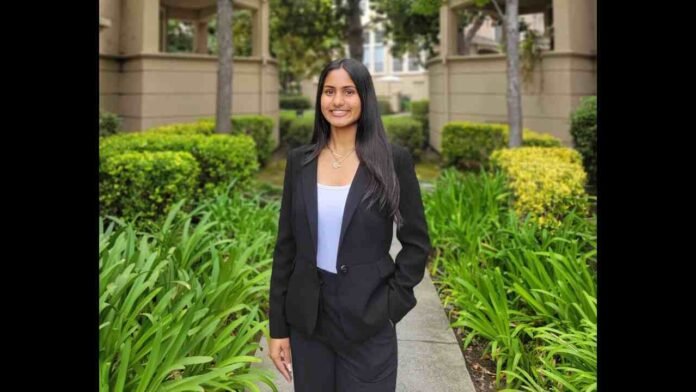Housing insecurity is one of the most urgent crises in modern cities—linked not only to homelessness but also to school dropouts, job instability, and worsening mental health outcomes. When families lose stable housing, the ripple effects can last for generations, impacting education, health, and community well-being. The challenge lies in timing: by the time direct indicators like eviction filings appear in the system, it’s often too late to intervene. Families are already in crisis, and solutions become far more expensive and difficult to implement.
Through the YRI Fellowship, student researcher Nitya Kaki is working on a bold solution. Her project uses machine learning to predict housing insecurity before eviction occurs, shifting the response from reactive to proactive. By analyzing proxy indicators—such as rent burden, school absences, 311 distress calls, and poverty levels—her model seeks to detect early warning signs of instability. The goal is to build a low-latency, scalable risk model that city planners, nonprofits, and social workers can use to identify at-risk households and intervene with support before displacement becomes inevitable.
For Nitya, this project is deeply personal. Her commitment to the cause comes from years of volunteering with the unhoused community, where she has served meals, distributed hygiene kits, and, perhaps most importantly, listened to stories too often ignored. Those experiences shaped her conviction that behind every statistic is a person with dignity, resilience, and a story worth hearing.
She even founded Hope Packs, an initiative that creates customized care packages for unhoused individuals based on the actual needs they express. Instead of assuming what people require, Nitya and her team take time to ask and respond directly. This approach reflects the same principle at the core of her AI research: solutions must be responsive, human-centered, and grounded in empathy.
“Hope Packs allowed me to respond to immediate needs,” Nitya explained. “But I realized charity alone wasn’t enough. We need tools that prevent families from losing their homes in the first place.”
That realization became the foundation for her YRI-backed research. By shifting focus from reactive aid to predictive prevention, Nitya is tackling one of the most overlooked but critical aspects of the housing crisis: early detection of risk. Her framework doesn’t just crunch numbers—it aims to map the complex interplay of social, economic, and household factors that often lead to eviction.
In practice, this means using AI models that can weigh indicators like rent burden (the percentage of income spent on housing), changes in school attendance, or patterns of distress calls to city hotlines. These signals, while not always dramatic on their own, can become powerful predictors when combined in a data-driven framework. The resulting early warning system could allow city agencies and NGOs to target resources—such as rental assistance, legal aid, or counseling—where they are needed most, potentially preventing thousands of families from slipping into homelessness.
This approach reflects the unique mission of the YRI Fellowship: empowering young researchers not only to study problems but to design real-world, actionable solutions. Nitya’s project is not a theoretical exercise. It is a practical tool in development—one that could be deployed in cities across the globe.
By embedding explainability into her model, Nitya is also working to ensure that the system is trusted and usable by decision-makers. Predictive models in social policy must be transparent, fair, and accountable, especially when lives and livelihoods are at stake. By prioritizing ethical AI principles, she is ensuring her system does not just predict risk but does so in a way that respects the dignity of the families it serves.
Nitya’s journey also highlights the power of pairing personal experience with scientific innovation. What began as community service evolved into a research project with the potential for global impact—a transition made possible by YRI’s mentorship, accountability structures, and culture of ambition. With weekly milestones, PhD-level guidance, and a network of peers equally passionate about change, the Fellowship gave her the platform to transform her compassion into actionable science.
In the long run, projects like Nitya’s could transform how cities fight homelessness. Instead of waiting until eviction is imminent, municipalities could predict risk six months or even a year in advance, allowing for timely intervention. The result would not only reduce human suffering but also save millions in public spending on shelters, emergency healthcare, and crisis response services.
Nitya’s story demonstrates that young innovators are capable of tackling society’s toughest challenges when given the right environment. By combining empathy, community service, and advanced technology, she is showing that the fight against homelessness is not only possible—it can be smarter, fairer, and more humane.
Learn more about how the YRI Fellowship is empowering students like Nitya to take on global challenges and pioneer solutions at yriscience.com.

